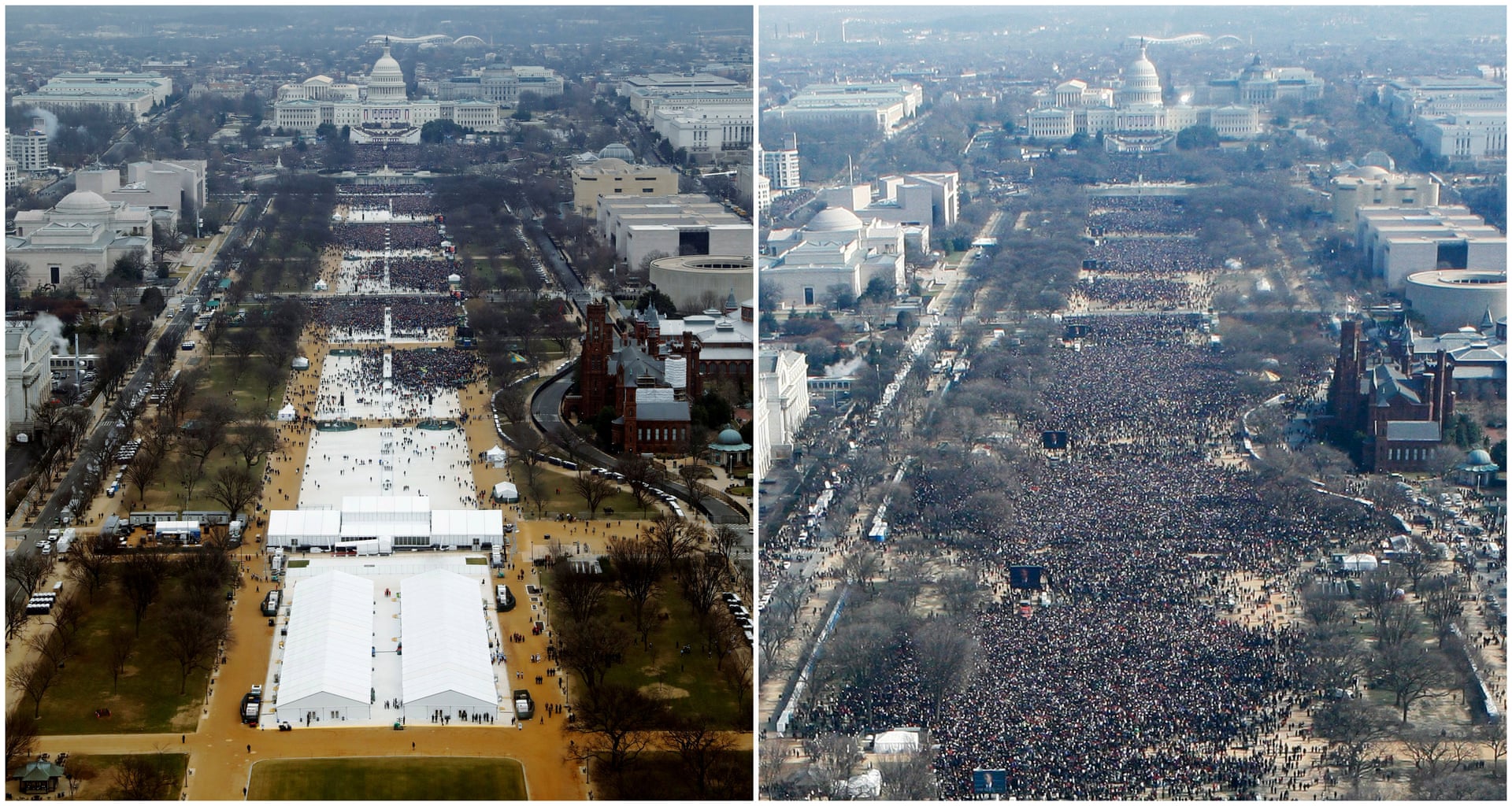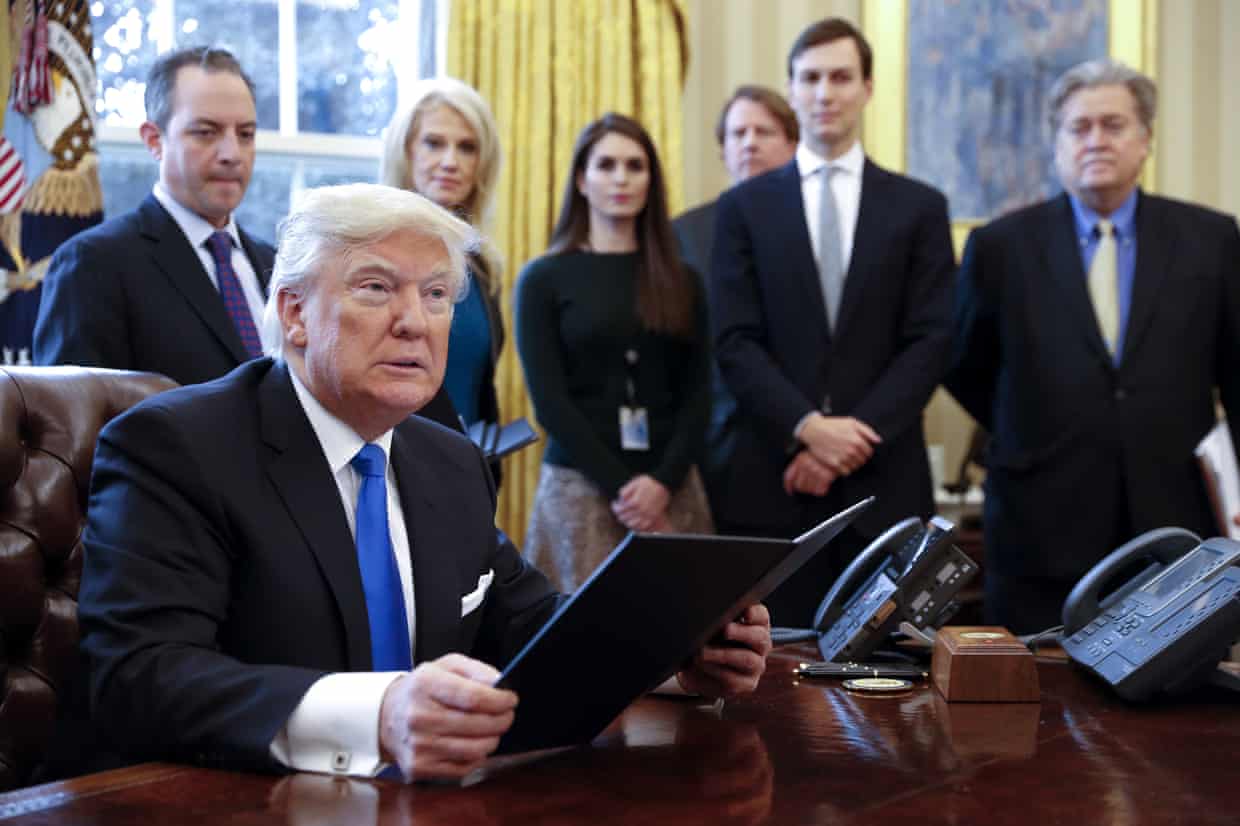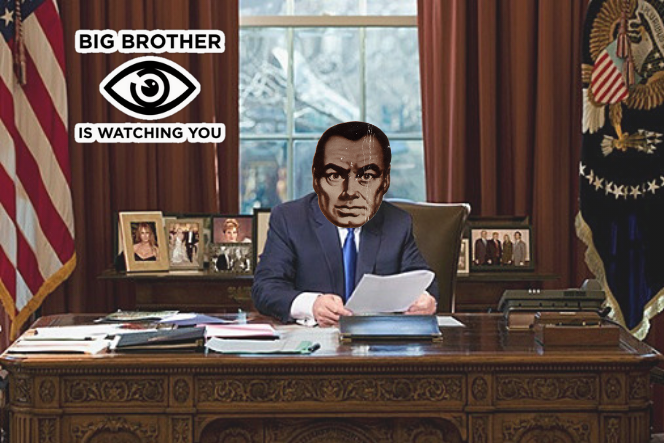The time of newspeak seems to be upon us. George Orwell’s 1984 has topped Amazon’s bestselling list, the sales surging after Kellyanne Conway, adviser to President Donald Trump, used the phrase “alternative facts” in an interview in early 2017. It was in reference to White House press secretary Sean Spicer’s comments about Trump’s inauguration attracting “the largest audience ever”.
📈A fact is a piece of information presented as having objective reality. https://t.co/gCKRZZm23c
— Merriam-Webster (@MerriamWebster) January 22, 2017
The protagonist of 1984 is Winston Smith who works at a propaganda department called the Ministry of Truth, a place where news that isn’t appropriate for the state can be discarded down a “memory hole.” As a not-so-subtle critique of propaganda in politics, this draws obvious comparisons to journalism and these “alternative facts”, which have been come to be associated with the concept of “newspeak”, language that removes all individual thought or ‘unorthodox’ ideas in the fictional universe of 1984. It is the lies or fictional truths from the mouths of politicians in power. But hasn’t this always been the case with politics?
Newspeak is not the only concept being pulled out of Orwellian literature. Political historian Allan Lichtman stated on CNN: “This brings us to ‘1984’ doublethink, where war is really peace, where famine is really plenty. That’s what’s happening here.” Doublethink means “the power of holding two contradictory beliefs in one’s mind simultaneously, and accepting both of them”. The novel exhibits what would happen under a totalitarian state which has complete control over its citizens and eliminates all forms of individuality and independent thought.
It is understandable why the comparisons are being made. There were claims by White House spokesman Sean Spicer that the media were distorting how many people had attended Donald Trump’s inauguration in contrast to Obama’s in 2009. The images below show National Mall’s attendance, which is only a fraction of the attendees at the inaugurations. While this outburst was not unexpected, it still shocked Americans; but it has only proved that there was never going to be normality in the Oval Office over the next four years. The presidency is a reality show and the media are giving him his ratings.

1984‘s primary message is that propaganda is implemented to limit or even eliminate human consciousness, one’s capability of thinking. Orwellian literature is packed with criticism of language and manipulation of power. In his essay Politics and the English Language, he states: “Political language is designed to make lies sound truthful and murder respectable, and to give an appearance of solidity to pure wind.” This has definitely been the case as Trump’s first few days were like watching a propagandist show.
But journalists need to remember that Trump plans to make the American media his enemy, to utilise them for his down purposes as he has been over his presidential campaign. Margaret Sullivan at the Washington Post wrote, “Spicer’s statement should be seen for what it is: Remarks made over the casket at the funeral of access journalism.”

While there are some grains of truth resonating in our society today from 1984, we are not moments away from believing that 2 + 2 = 5. President Donald Trump was an outcome that has created a lot of anxiety and anger, and he’s not the kind of person we want in a position of power. But it is only for a short period of time.
So here we have it. Donald Trump is the President of the United States and dystopian novel sales are flying through the roof. “Everyone remembers 1984 as containing various parodies of official distortions,” said Professor Stefan Collini, an expert on Orwell. “That kind of unreality that is propagated as reality is what people feel reminded of, and that’s why they keep coming back.”

